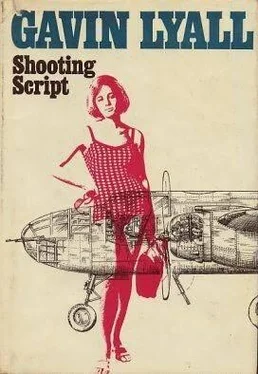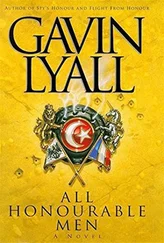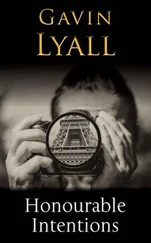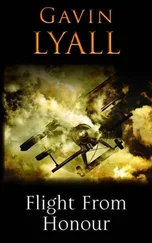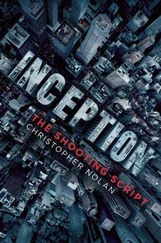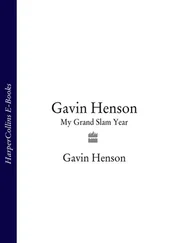Gavin Lyall - Shooting Script
Здесь есть возможность читать онлайн «Gavin Lyall - Shooting Script» весь текст электронной книги совершенно бесплатно (целиком полную версию без сокращений). В некоторых случаях можно слушать аудио, скачать через торрент в формате fb2 и присутствует краткое содержание. Жанр: Триллер, на английском языке. Описание произведения, (предисловие) а так же отзывы посетителей доступны на портале библиотеки ЛибКат.
- Название:Shooting Script
- Автор:
- Жанр:
- Год:неизвестен
- ISBN:нет данных
- Рейтинг книги:3 / 5. Голосов: 1
-
Избранное:Добавить в избранное
- Отзывы:
-
Ваша оценка:
- 60
- 1
- 2
- 3
- 4
- 5
Shooting Script: краткое содержание, описание и аннотация
Предлагаем к чтению аннотацию, описание, краткое содержание или предисловие (зависит от того, что написал сам автор книги «Shooting Script»). Если вы не нашли необходимую информацию о книге — напишите в комментариях, мы постараемся отыскать её.
Shooting Script — читать онлайн бесплатно полную книгу (весь текст) целиком
Ниже представлен текст книги, разбитый по страницам. Система сохранения места последней прочитанной страницы, позволяет с удобством читать онлайн бесплатно книгу «Shooting Script», без необходимости каждый раз заново искать на чём Вы остановились. Поставьте закладку, и сможете в любой момент перейти на страницу, на которой закончили чтение.
Интервал:
Закладка:
J.B. came out of the hangar with a small, tubby man wearing sunglasses, a black moustache and a grease-stained whitepanamahat. She was carrying a handful of papers and not looking I-feel-like-singing about them.
'The certificate of airworthiness,' she recited tonelessly, 'was issued in Colombia two years ago and says it'slimitado. Limited – what does that mean?'
'Mustn't ply for hire or reward. I'd expected that. If you own it, you can have it flown how you like. What about the logs?'
She handed them over, three unimpressive little mock-leather volumes like autograph books.
The aircraft one had a chit pinned in the front headed 'as removed from military records' which showed the Mitchell had done about six thousand hours before getting a US Air Force overhaul in 1951 which, it claimed, brought her back to the perfection of having done zero hours. But they'd sold her off to Colombia before they could prove themselves wrong.
In Colombia she'd flown another 1,500 hours as a bomber and been given another overhaul which – surprise, surprise -had once more restored her to zero hours condition. However, again she'd been sold off fast – for 900 hours as a freight transport, and then 300 as a private passenger plane. But apart from the delivery flight, carefully entered up as exactly two hours fifty minutes – she hadn't flown this year.
J.B. said sombrely: 'How does it look?'
I shrugged. 'About as I expected. These things might be honest, might not-'
'Could we sue on them?'
'If things go wrong, we and the plane'll be at the bottom of the Caribbean. Tell him you'll pay him when I've checked it over.'
She gave me a very steady look and said, deliberately toneless: 'He doesn't speak English – he says. He also says he has another customer, and he wants his money right now.'
I grinned at the fat face under the greasypanama. I knew the 'another customer' line. 'Tell him,' I said, speaking slowly and carefully, 'that according to the log, this aeroplane has, like his sister, been a virgin three times already. I will sleep with her tonight and give my decision tomorrow.'
Our Friendly Home-Town Used-Aeroplane Dealer had gone as rigid as a girder. I knew the don't-speak-English line, too. Everyone connected with aeroplaneshas to speak English.
J.B. glanced sideways, saw interpretation was unnecessary, and asked me: 'Why tomorrow?'
'I won't do an air test until I've run up the engines properly, and I don't want to do that until this evening when the air's cooler. Tomorrow.'
She nodded, then handed me the last of the papers: a collection of stained, loose pages about the size of a science-fiction magazine. 'That's all he had.'
The top sheet was headed Flight Handbook, B-25N;USAP; revised to 15 August 1951.Applied to this old lady, science-fiction was about what it would be. I sighed.
J.B. said quickly. 'If you want to say the hell with this and go back to Jamaica, I won't be part of any suit against you for breaking your contract.'
'Thanks. But…' I looked up at the Mitchell again. Ever since I'd learned to fly, I'd had one dream every few months: that I was sitting in a plane I didn't trust, and hadn't any proper instruction about – and I had to fly her. Now I was looking at my bad dream.
There's always a way to walk away: to walk away first.
'Thanks,' I said again. 'But I'm a pilot – and I don't have any other plane to fly. I'll tell you tomorrow.'
She looked at me hard for a moment, then turned to the man in thepanamaand started talking fast, fluent Spanish. I walked away, ducked under the belly of the Mitchell, and 95 climbed up through the open hatch just forward of the bomb-bay.
I was in a narrow, hot, dark cabin about as high as I could stand and not as wide as I could reach with both arms outspread. Ahead of me, up a high step, was a blaze of light coming in through the greenhouse roof on to the side-by-side pilots' seats. I stayed where I was, straddling the hatch, and looked slowly all around.
The dark green plastic sound-proofing on the metal skin was hanging loose by now, only kept in place by the criss-cross of pipes and cables and mess of switchboxes and boards of contact-breakers. Above me there was a filled-in circle in the roof where there had once been a gun-turret. Behind me, the metal box of the bomb-bay blocked off the aft end of the fuselage except for a small space at the top. And around my left knee, a small, square dark tunnel led forward under the pilots' seats to the bomb-aimer's position in the transparent nose.
Distant growls and hums off the airfield came up from the hatch at my feet. They annoyed me; I wanted to be alone with this bitch. I found a folding top hatch and slid it shut. The noise stopped.
I took a slow, deep breath. The Mitchell smelled. Of petrol and oil and hydraulic fluid and plastic and leather and sweat, but all adding up to some new, strange smell that would be the way all Mitchells smelled, because every type has its own smell. It was somehow interesting, but for some reason worrying, too.
I took a high step forward and, hunching myself up, eased into the left-hand pilot's seat, being very careful not to touch any lever or switch that might drop the whole plane on its backside. No switch should, of course, but who repairs safety locks after twenty years?
Under the transparent roof, the cockpit was like a furnace. The leather seat singed my bottom and I felt sweat start to trickle down my ribs. But I got myself as comfortable as I could, and started a careful look around.
It was as bad as I'd expected, or worse. How I'd ever make any sense of it or find any control in it…that airspeed indicator reads up to 700 mph – must have come out of a crashed jet; no Mitchell ever did half that speed… and what instrument should be in that empty socket?…Then I knew why the smell had worried me.
She was a woman I'd been warned off by everybody and my own common sense. And now I'd come close enough to get the smell of her in my nostrils.
Slowly, gently, I reached out my hands to touch her.
I was lying on my hotel bed reading a loose page of the Mitchell handbook that illustrated seven different types of smoke and flame that might be met coming out of its engines, and wondering which of them I'd meet coming out of the room's air-conditioner, when somebody knocked at the door.
I yelled'Animo!' and J.B. walked in, wearing a skirt, a bra, and an expression as if her best-rehearsed witness hadn't turned up in court.
'A spider the size of a horse came up the plug hole in my washbasin,' she announced coldly, 'and the telephone doesn't work.'
I smiled reassuringly. 'It's nice to know Barranquilla hasn't changed. The trick is to hit them both with your shoe.'
'Listen, chum: that spider wears the same size boots as I do, only eight of them.'
'Use my washbasin, then.'
She looked at me, then it, suspiciously. But the first thing I'd done when I found there wasn't a spider in it at that particular moment was shove the plug in. When I'd found a plug, of course.
She discovered which tap worked and started splashing tepid water around herself. I put down my Smoke and Flame Identification Chart and watched. She had a slim, firm body and small sharp breasts more or less inside the thin bra. She caught my eye, but it didn't seem to bother her. She didn't flaunt her body, but maybe she used it a little defiantly, so as to sneer at people who thought it was the true J.B. Penrose.
When she'd finished drying herself on my towel, she just stood there and said: 'Well?'
'Sit down and talk it over.'
'I was just wondering,' she said heavily, 'if I had to spend the night with that damn tarantula or whatever. And what a brave fighter pilot might do about it.'
'That's what I'm prepared to talk about. Anyhow, what about the brave Hollywood lawyer? Why don't you slap a court order on him?'
Читать дальшеИнтервал:
Закладка:
Похожие книги на «Shooting Script»
Представляем Вашему вниманию похожие книги на «Shooting Script» списком для выбора. Мы отобрали схожую по названию и смыслу литературу в надежде предоставить читателям больше вариантов отыскать новые, интересные, ещё непрочитанные произведения.
Обсуждение, отзывы о книге «Shooting Script» и просто собственные мнения читателей. Оставьте ваши комментарии, напишите, что Вы думаете о произведении, его смысле или главных героях. Укажите что конкретно понравилось, а что нет, и почему Вы так считаете.
